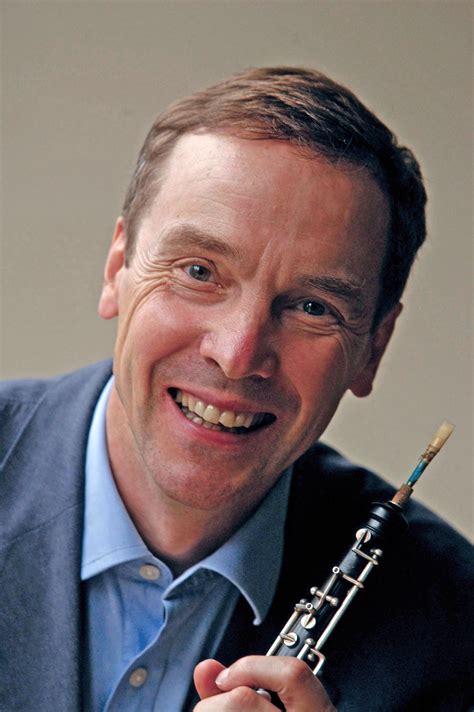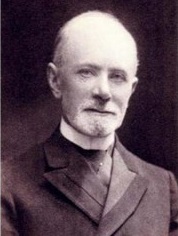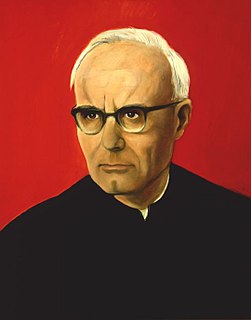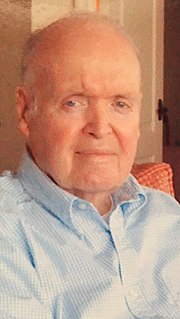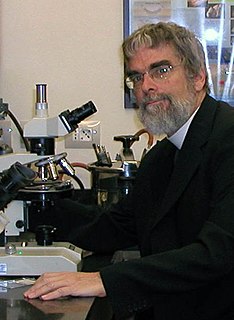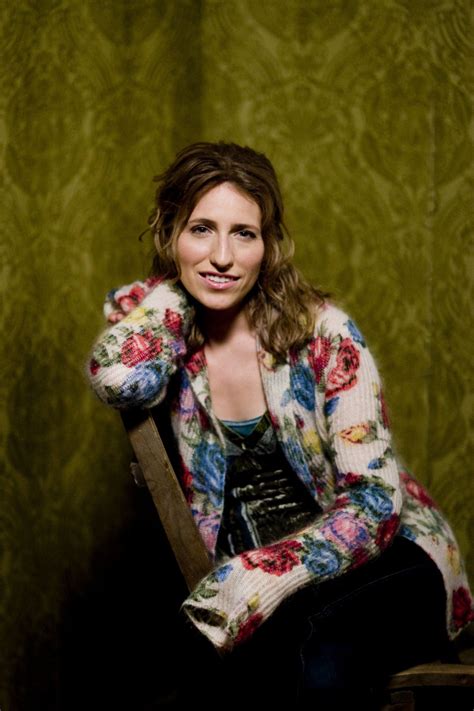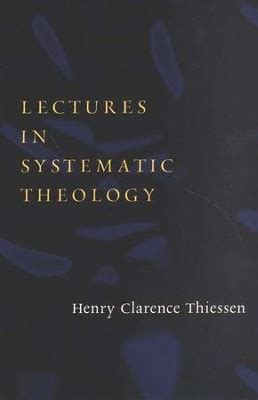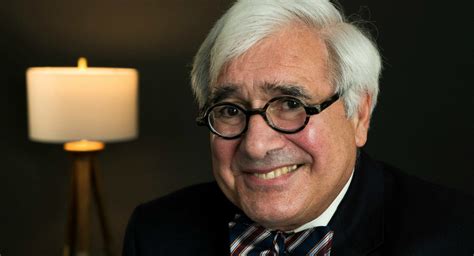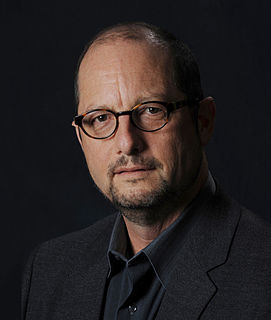Top 766 Theology Quotes & Sayings - Page 10
Explore popular Theology quotes.
Last updated on November 17, 2024.
We can pursue the Cartesian project without restricting ourselves to theology and a priori faculties. A better, broader perspective is properly sought if we pursue the project with reliance on science broadly and on our full span of epistemic competences, including the empirical as well as the a priori.
When you've got African parents, you go to uni, do finance, and go into accounting. But I'm not good with systems. I dropped out in my final year of college to become a Christian poet. Then went back to do my A-levels and went to uni in Birmingham to do political science and theology. I lasted 12 weeks.
The assumption behind any theology that I've ever been familiar with is that there is a profound beauty in being, simply in itself. Poetry, at least traditionally, has been an educing of the beauty of language, the beauty of experience, the beauty of the working of the mind, and so on. The pastor does, indeed, appreciate it.
Theology, by diverting the attention of men from this life to another, and by endeavoring to coerce all men into one religion, constantly preaching that this world is full of misery, but the next world would be beautiful - or not, as the case may be - has forced on men the thought of fear where otherwise there might have been the happy abandon of nature.
I don't know if the term 'liberation theology,' which can be interpreted in a very positive sense, will help us much. What's important is the common rationality to which the church offers a fundamental contribution, and which must always help in the education of conscience, both for public and for private life.
A man must have a stout digestion to feed upon some men's theology; no sap, no sweetness, no life, but all stern accuracy, and fleshless definition. Proclaimed without tenderness, and argued without affection, the gospel from such men rather resembles a missile from a catapult than bread from a Father's hand.
Beyond these models of reconciliation, a theology of mysticism provides some hope for common ground between Christianity and Islam. Both religions have within their histories examples of ecstatic union with God, which seem at odds with their own spiritual traditions but have much in common with each other.
What is preaching? Logic on fire! Preaching is theology coming through a man who is on fire. A true understanding and experience of the Truth must lead to this. I say again that a man who can speak about these things dispassionately has no right whatsoever to be in a pulpit; and should never be allowed to enter one.
Christian theology provides some of the best arguments for respecting animal life and for taking seriously animals as partners with us within God's creation. It may be ironical that this tradition, once thought of as the bastion of human moral exclusivity, should now be seen as the seed-bed for a creative understanding of animal liberation.
If you expound the teaching of the Logos from the standpoint of the moral life, using materialistic words and examples which correspond to the capacity of your hearers, you make the Logos flesh. Conversely, if you elucidate mystical theology by means of the higher forms of contemplation you make the Logos spirit.
This is the doctrine that we preach; if a man be saved, all the honor is to be given to Christ; but if a man be lost, all the blame is to be laid upon himself. You will find all true theology summed up in these two short sentences, salvation is all of the grace of God, damnation is all of the will of man.
What is wonderful about a university like LSE is that you not only receive teaching of very high quality, you also learn where to find the knowledge you are seeking. And you make unexpected discoveries; it was a Marxist professor who introduced me to the work of Cardinal Newman, a great master of English prose as well as theology.
The miraculous revelation of the Old Testament and the New, the miracles of famous men, Jews, Gentiles, or Christians, — then Franklin had no religion at all; and it would be an insult to say that he believed in the popular theology of his time, or of ours, for I find not a line from his pen indicating any such belief.
Insofar as theology is an attempt to define and clarify intellectual positions, it is apt to lead to discussion, to differences of opinion, even to controversy, and hence to be divisive. And this has had a strong tendency to dampen serious discussion of theological issues in most groups, and hence to strengthen the general anti-intellectual bias.
What I see now is that even with the Islamists, who have been portraying themselves as the alternative to corruption and dictatorship and in defence of more transparency, there is one respect in which they have now changed completely. Since the beginning of the 1920's, Islamism was very close in positioning in some respects to 'liberation theology'. But that is no longer the case.
Philadelphia caught my attention in 1995 when a group of homeless families were living in an abandoned cathedral. Even from the beginning they connected theology with what they were doing. They put a banner on the front of the cathedral that said, "How can we worship a homeless man on Sunday and ignore one on Monday."
Aristotle especially, both by speculation and observation... reached something like the modern idea of a succession of higher organizations from lower, and made the fruitful suggestion of "a perfecting principle" in Nature. With the coming in of Christian theology this tendency toward a yet truer theory of evolution was mainly stopped, but the old crude view remained.
For it is the bitter grief of theology and its blessed task, too, always to have to seek (because it does not clearly have present to it at the time)...always providing that one has the courage to ask questions, to be dissatisfied, to think with the mind and heart one ACTUALLY has, and not with the mind and heart one is SUPPOSED TO have.
As long as the Southern colleges have revivals on their campuses and students get converted to Methodism and join the YMCA and are accepted as gentlemen, it will be impossible to think of the South as civilized...The educated folk of the Old South took theology lightly, and religion to them was hardly more than a charming ritual, useful on solemn occassions.
The quickest way to detect a cult is to sniff for doublethink. The cult seeks control over its membership not by providing a coherent theological system but by providing the opposite: an unstable theology infinitely malleable to the needs of the cult's top echelon and uninterpretable at all times to anyone below that level.
There is a notion that complete impartiality is the most fitting and indeed the normal disposition for true exegesis , because it guarantees complete absence of prejudice. For a short time, around 1910, this idea threatened to achieve almost a canonical status in Protestant theology. But now, we can quite calmly describe it as merely comical.
Pope Benedict XVI's resignation is big on buzz but is not the stunning surprise claimed by many pundits. It is rather a further example of the German theology professor's style that informed his years as head of the Congregation for the Doctrine of the Faith, his term as pope, and the formation of his legacy to the church.
The starting-point and chief principle of every science, and hence of theology also, is not only methodical doubt, but positive doubt. One can believe only what one has perceived to be true from reasonable grounds, and consequently one must have the courage to continue doubting until one has found reliable grounds to satisfy the reason.
What it does remind us is that 'God' is not to be separated from the quest for the Kingdom of God and is not and cannot be the object of any detached 'scientific' contemplation. Heidegger's critique of onto-theology is also driving a wedge between speaking of God and the aims of science - not so as to get rid of God but rather to free God from a false objectification.
The gloomy theology of the orthodox--the Calvinists--I do not, I cannot believe. Many of the notions--nay, most of the notions--which orthodox people have of the divinity of the Bible, I disbelieve. I am so nearly infidel in all my views, that too, in spite of my wishes, that none but the most liberal doctrines can command my assent.
Catholic theology accounts for the fact that there's evil in the world. People say, well, how could God let this happen. Well, what God did was set the mechanism in motion and then allow people to do the best they can under the circumstances that they're dealt in order to gain grace and get into heaven.
When you put biblical truth to the songs used in churches, you'll have the congregation leave singing the sermon. You'll have God's thoughts, things that are God-breathed, stuck in their heads. It's sad to think about a really catchy tune paired up with bad theology because that could, honestly, do a lot of damage in church.
The Bible is to the theologian what nature is to the scientist, a body of unorganized, or only partly organized facts. God has not seen fit to write the Bible in the form of a systematic theology; it remains for us, therefore, to gather together the scattered facts and to build them up into a logical system.
I think gardening is nearer to godliness than theology. True gardeners are both iconographers and theologians insofar as these activities are the fruit of prayer 'without ceasing.' Likewise, true gardeners never cease to garden, not even in their sleep, because gardening is not just something they do. It is how they live.
There are only two places where the powerful and great in this world lose their courage, tremble in the depths of their souls, and become truly afraid. These are the manger and the cross of Jesus Christ....No priest, no theologian stood at the cradle of Bethlehem. And yet, all Christian theology finds its beginnings in the miracle of miracles, that God became human.
You know how it is in the symphony when you are listening to the symphony, the last notes die away, and there's often a beat of silence in the auditorium before the applause begins. It's a very full and pregnant silence. Now theology should bring us to live into that silence, into that pregnant pause.
We are left with the feeling that the church has overdone it, no matter how you cut it, and that homosexuals have certainly suffered more wrong than they have committed, and that there must be flaws in whatever theology of nature or hierarchy of sins has made homosexuality be viewed as the nadir of depravity... This feeling increases when one becomes acquainted with responsible, Christian, homosexual people.












